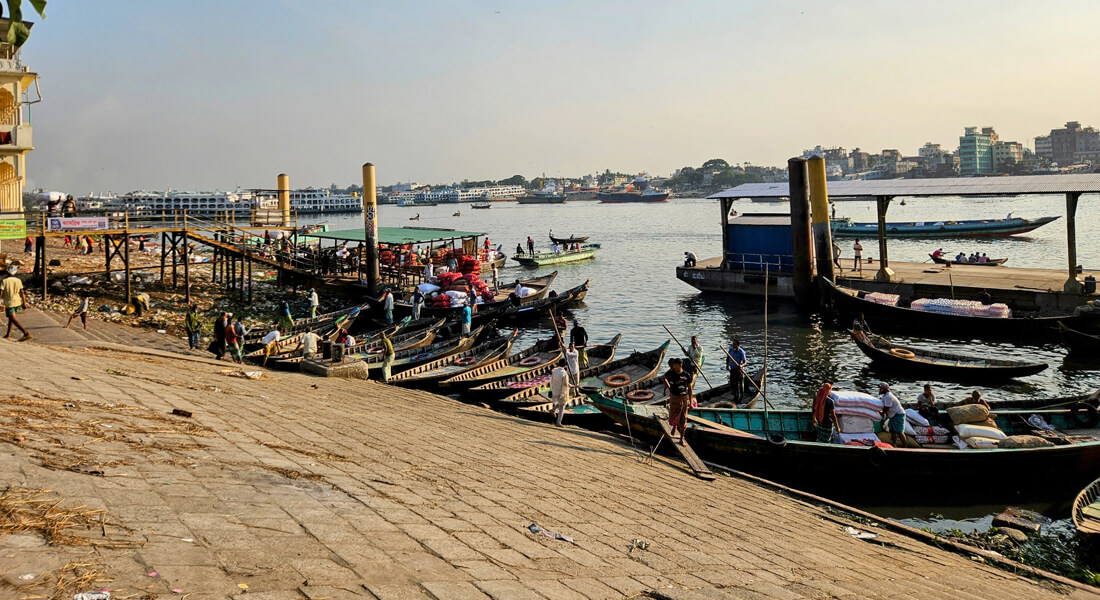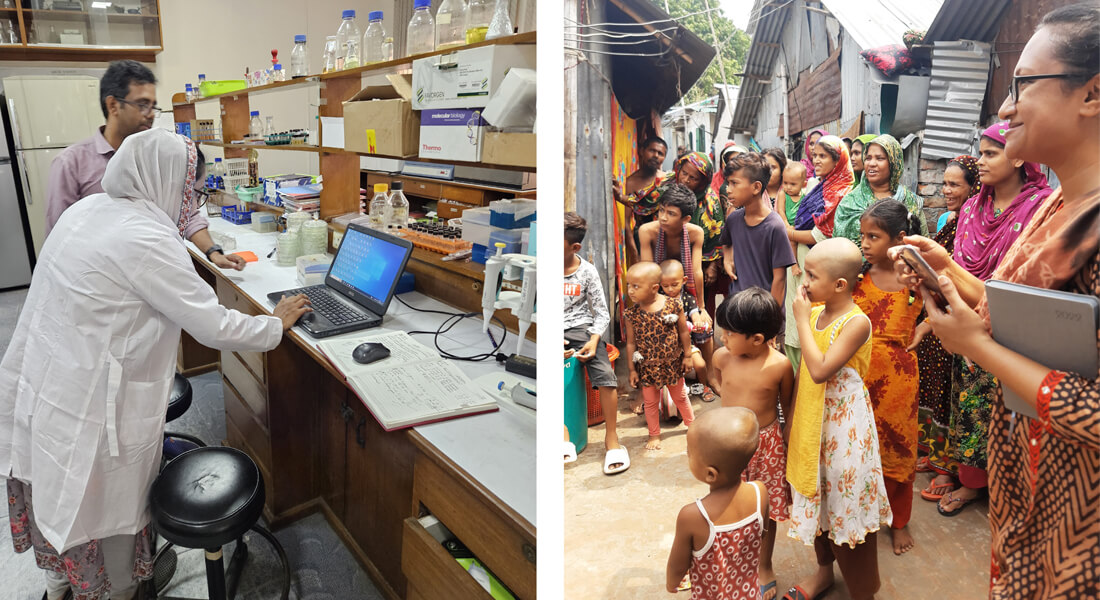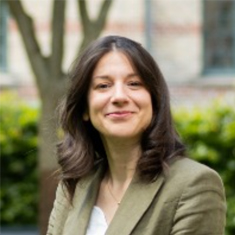Unravelling Water Scarcity and Pathogen Transmission: PhD Research Stay in Bangladesh
Sara Almeida is a PhD fellow at COPE and her research is part of the DANIDA funded WatScarce project, a multidisciplinary project studying the influence of water scarcity on pathogen transmission in low-income urban households in Bangladesh. She has recently returned from her PhD research stay in Dhaka, Bangladesh.

By Sara Almeida, PhD researcher with the University of Copenhagen
I embarked on my PhD project in June 2023, with my research focusing on water scarcity and its influence on pathogen transmission in low-income urban households in Bangladesh. I stayed in Bangladesh on the last trimester of 2023 as part of my PhD research stay, working closely with both the University of Dhaka and ICDDR,B (International Centre for Diarrhoeal Disease Research, Bangladesh).
Bangladesh is one of the most vulnerable countries to climate change. Frequent flooding, droughts, and saltwater intrusions, exacerbate water scarcity, increasing the incidence of waterborne diseases such as diarrhea and, at the same time, forcing millions to flee rural settings every year in the quest for better living in cities.
Dhaka, the capital city of Bangladesh, is one of the world's most densely populated cities, with a population of approximately 21 million people. The city is a bustling urban hub known for its vibrant culture, diverse communities, and economic growth. However, it also faces significant challenges, including overpopulation, inadequate infrastructure, and pressing environmental issues, such as more frequent heat waves and groundwater levels sinking 2-3 meters per year.
The WatScarce Project
WatScarce is a 5-year project studying the impact of water scarcity on pathogen transmission in low-income urban households, focusing on both climate-displaced migrants and established residents in Bangladesh. The project aims to provide insights into transmission routes for hygiene-related pathogens and identify strategies for climate change adaptation. Additionally, WatScarce will implement and further develop the "cholera phone", a mobile phone-based method for epidemiological household surveillance and communication with households.
This project is an interdisciplinary collaboration between the University of Copenhagen, University of Dhaka, ICDDR,B, US Centers for Disease Control and Prevention (CDC) and Refugee and Migratory Movements Research Unit (RMMRU), and has 5 PhD students enrolled working on different areas of the project.

My PhD Study
My PhD research aims to examine and compare the longitudinal changes in disease patterns, medicine use, and health-seeking behaviour in migrant and old residents of low-income households in the study area, and to develop and evaluate new methods for disease surveillance using mobile phones as investigation tools in low-income settings.
During my stay in Bangladesh, I collaborated with our colleagues at ICDDR,B and University of Dhaka to complete and submit the Research Review Committee (RRC) protocol. This included preparing all necessary questionnaires and securing ethical approvals for the project before starting fieldwork. My work involved close coordination and communication with local researchers and the other PhD students enrolled at the University of Dhaka to ensure the successful implementation of the project.
Current Project Status and Next Steps
Our team in Bangladesh has begun baseline data collection two weeks ago. This marks a significant milestone in the project, as it will provide crucial data for analyzing the impact of water scarcity on health outcomes in the study area. We are eager to start this phase and are optimistic about the insights it will bring for our research and the communities involved.
Acknowledgements
I would like to thank the Graduate School at Faculty of Health and Medical Sciences and the Graduate programme in Public Health and Epidemiology for their financial support for my research stay.
The project is funded by Ministry of Foreign Affairs, Denmark.
Read more about the WatScarce project here.
|
About Sara Almeida Sara Almeida is a pharmacist by training with a focus on infectious diseases. She has been working on global health and more specifically in WASH for the last 4 years and is now doing a PhD in epidemiology and public health at COPE. Her PhD work is part of the WatScarce project – a 5-year project studying the influence of water scarcity on pathogen transmission in low-income urban households in Dhaka, Bangladesh. Her PhD work will focus on disease patterns, medicine use, and health-seeking behaviour of both newly migrants and established residents of low-income urban communities, an on the implementation and evaluation of the use of mobile phones as a disease surveillance tool in these settings. |
| If you would like to know more about Sara Almeida's work, please find her on LinkedIn or contact via email. |

